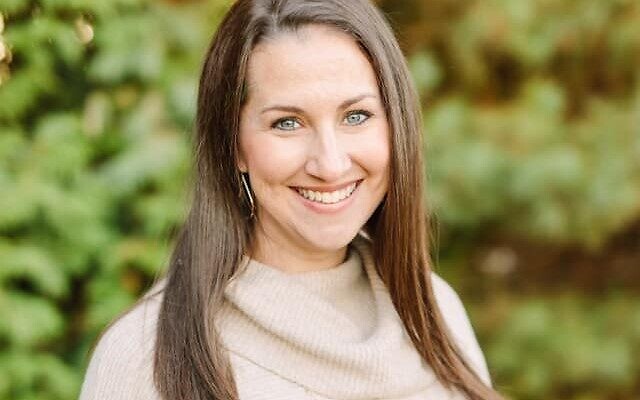Study: Jewish Women, Girls Under Pressure
Parallels between the anxiety of teens and adult women discovered.

When the Jewish Women’s Fund of Atlanta launched its study of the needs of women and girls in the local Jewish community earlier this year, it hoped to interview maybe a couple of hundred individuals in three categories. Those categories included working women, issues surrounding the aging and caregivers, and teens.
What they learned was that both adult women and teen girls were stressed by the same work-life/school balance, and both groups wanted to talk about it.
Instead, surpassing expectations, the grant-making organization founded in 2012 captured nearly 800 responses to the research conducted by the Brandeis University’s Cohen Center for Modern Jewish Studies and the Steinhardt Social Research Institute.
“The response far exceeded anything we ever imagined,” said Rachel Wasserman, JWFA executive director. “Our researchers were also blown away. At 500 it would have been amazing, at 600, unprecedented. Women were so hungry to talk about those issues. They said no one had ever asked them before.”
The results of the needs-assessment study were announced March 18 and presented to the trustees of the JWFA.
Brandeis research scientist Fern Chertok told the AJT that the number of responses was particularly astonishing because “we didn’t incentivize anyone. We were just talking to their needs. This is a set of conversations that haven’t been happening in the Jewish community and showed us that there’s a lot of room for the conversations to continue. And JWFA can bring them together.”
Wasserman said she was most surprised by how candid the interviewees were about their struggles and challenges in balancing work-life issues. “We saw parallels with the teen study. We’re all dealing with the same thing and there must be a way to intervene at an earlier stage in life. That was the biggest ‘aha’ for us because we’re perpetuating the same anxiety. Teenage girls become moms and we have got to be stop this cycle.”
Lisa Fox Freedman, a JWFA executive board member and co-chair of the study, said she, too, was surprised by the parallels with the teen study. “Teens are trying to be perfect and to get into the best schools.”
According to JWFA, many of the teen girls expressed the pressure to be perfect in all areas of their lives, whether it was in academics and extracurricular activities, their relations with friends, or their personal appearance and how they conduct

who experienced sexual harassment in the workplace never reported it.
themselves. One high school teen mused, “I guess it’s the way that the world is right now, … if you haven’t cured cancer by the time you’re 12, then you’re a failure.”
Both Wasserman and Chertok noted that this was the first in-depth look at core issues affecting Jewish women in a community. “We had not had a chance to take a deep dive into these questions,” Chertok said. “It was a unique opportunity,” and valuable for her as a researcher because the “Cohen Center exists to provide usable knowledge that Jewish communities and organizations can act on.”
The study showed that more than one-quarter of the women are in jobs that don’t provide paid maternity leave. “Even women who work in the Jewish communal environment,” Chertok said. “That flies in the face of organizations who say they support families.”
The results also showed that 37 percent of the women face illegal discrimination, such as earning less than men in comparable jobs and 26 percent of women experienced some kind of sexual harassment in the last 10 years. Of those, Chertok was especially surprised that three-quarters stated that they never reported the harassment because they were afraid of the repercussions. That included college-educated, comfortably well-off women.
The study discovered that both working women as well as teenage girls want and need mentors. “Teens wanted older women they can turn to” who aren’t relatives or teachers, Chertok said.
“A lack of mentorship came up across the board,” Wasserman said. She pointed out that this year JWFA implemented a mentorship program, starting with only 20 women. “Now it’s evident that this is a need for women and teenage girls.”
Wasserman said that what JWFA “set out to accomplish, we accomplished. And we saw proof that, although the Jewish community thinks it’s different than the wider world, it isn’t. The same problems exist in the Jewish world. These numbers show this loud and clear. This study sets our agenda for the next number of years.”
For more information on the study findings, visit https://jwfatlanta.org/research/



comments